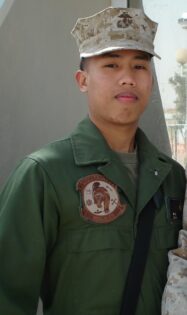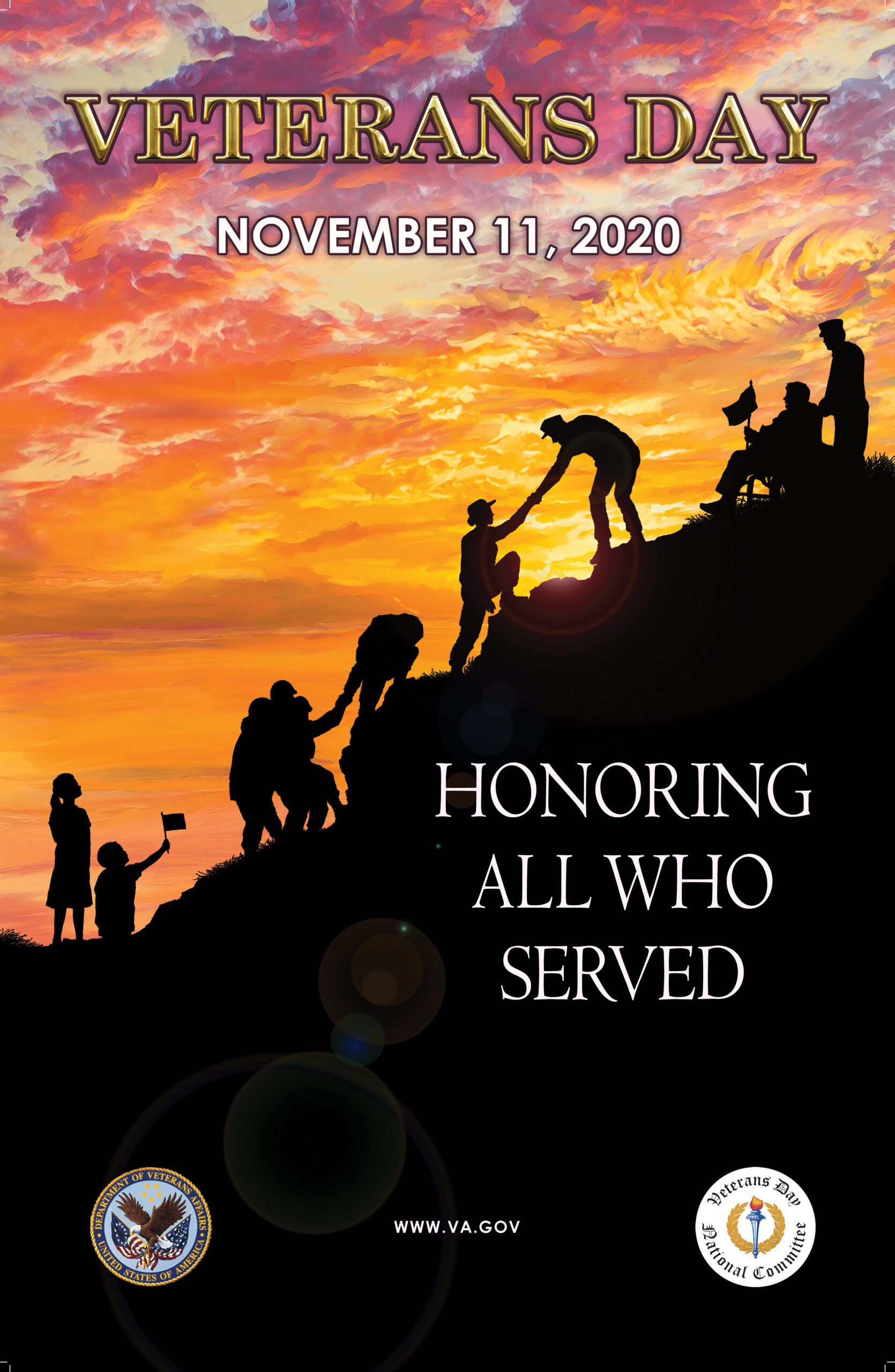By Anthony Vasquez, Staff Reporter
“Thank you for your service,” is a phrase weighted with more significance on a day like this, Veteran’s Day, since it is a time to honor and remember all Americans who have served in the military.
But don’t waste your breath thanking Rodrigo Rodrigo. It’s not that the CSUDH graduate and eight-year veteran of the U.S. Marine Corps. doesn’t appreciate the sentiment: he’s just hasn’t stopped serving.
Rodrigo, who credits the CSUDH Veteran’s Resource Center with helping him find an academic direction after his military service, was recently named academic adviser of the VRC’s Veteran’s Project.

Rodrigo was born in the Philippines and moved to Carson when he was 12. After graduating high school, he served eight years in the Marine Corps, working as an F/A-18 aviation electrician and as a canvassing recruiter. After leaving the military, he graduated from CSUDH with a bachelor’s in human resources and management, received his master’s at USC and then returned to CSUDH to work with veterans.
So, for our Veteran’s Day feature, The Bulletin caught up with Rodrigo to ask him how the VRC is celebrating Veteran’s Day in the middle of a pandemic, what are the special resources or needs that veterans have, ] and his life’s ongoing journey, one where paying it forward to his fellow veterans is a throughline.
Bulletin: You served eight years in the Marines. Could you talk about your motivation to join and what your experience was like?
Rodrigo: The main reason I joined the military was because I had no intentions of going to school. I said ‘I spent 12 years of my life going to school, and you’re not going to get me to do it again for the next four years and pay for it.’ I had the grades but didn’t have that desire or that money. But the most important thing is I didn’t have that guidance that pushed me to go to college. I didn’t have that mentorship saying “hey you could take loans, get grants, get scholarships.
But I wouldn’t change my experience of being in the military. It was a very unique experience and I learned a lot. There were definitely good days and there were bad days, and the bad days were really bad and the good days were really good but the good outweighed the bad and I would never change my experience.
I was able to develop leadership and that sense of belonging to something bigger than myself. I was able to travel to different parts of the world, learn different jobs and different skills that I would never be exposed to.
But the main thing is that I had this sense of pride of all the accomplishments I had done developed friendships and bonds that will last my entire life.
But the main thing is that I had this sense of pride of all the accomplishments I had done developed friendships and bonds that will last my entire life.
Q: Did you learn anything from your military service that you can apply to post-military life?
R: I think having that mental resilience to being able to overcome things that I never thought I could, of learning how to push forward.
I learned to embrace the bad things knowing that there will always be good to come out of it.
As far as leadership traits, the first is to know yourself and seek self-improvement. I’m the biggest critic of myself and I always judge myself. The main thing is rather than dwelling on the things I don’t have I’ll work on them and try to develop myself further.
Also, to know your [fellow] Marines and look out for their welfare. And if you apply that in general terms, look out for the people you love and look out for their welfare. And so I apply that to our students to make sure they have all their resources. I apply that to my family. I don’t just look out for them physically for their food, shelter, and clothing but also how they’re doing. I check up on my family members, I check up on my students, I check up on my coworkers as much as possible just because I want to make sure I’m not just looking out for myself. To me that’s the most important thing: to develop not just yourself but helping those around you.
Q: After leaving the military, you went to college, including graduating from CSUDH. What impact did the VRC have on you as a student here?
The reason I wanted to join the VRC is because when I was a student at DH they played a huge role into my future. When I was going to school I didn’t really have a goal in mind after I graduated. But through the help of the Veteran’s project team, the participants they kind of helped shape my future and the decisions in my career.
It was DaWayne Denmark the director who helped me and pushed me to take my Master’s he even took me to the orientation during his day off If he would’ve never done that I probably wouldn’t have gotten my Master’s.
Q: You then received your Master’s in Business for Veterans from USC.What did that entail?
R: The best thing about the school was it was only a year long, but you have to be a veteran, and they leverage your military skills and talent you developed in leadership, being a team member, a lot of the things in our military career applied to the business aspect.
For past stories related to veteran’s Day in the Bulletin,check out last year’s editorial, this award-winning opinion piece by a former editor, and a feature two years ago.
And it was very heavy on entrepreneuship. One of the things I never considered was becoming an entrepreneur. One of my Professors, Professor Knapp mentioned that you don’t have to be a full-time entrepreneur you could be a part-time entrepreneur and you can switch from your day job to your entrepreneurship career.
And so it was my classmates who encouraged me to say, ‘hey the stuff that you do is great.’ And that stuff is photography and videography. I always doubted myself. I thought it was just for myself as entertainment as a hobby. And I realized that people actually enjoyed them and were willing to pay money to get their photo taken, have a video done about them, or their product or their company. So I partnered up with one of my classmates and started this venture in entrepreneurship and we created a production team.
Q: You joined the TRIO veteran’s project after graduating from USC and in September you became the academic adviser for the Veteran’s Resource Center Veteran’s Project. What is the VRC’s Veteran’s Project?
R: The Veteran’s Project is a grant that supports veterans who are first-generation, low income, and have disabilities. I know as veteran sometimes we kind of get lost and we are hesitant to ask for help. That was me in the past. I want to help create that bridge and push the help forward to others and let them they don’t have to make all the decisions and take this journey alone.
Q: What does being adviser to the VRC entail?
R: To help our veteran community navigate their academic careers. That entails everything from academic support to selecting classes, to advising which major to go with, along with what’s career-orientated for their degree. The other stuff is personal support. From just listening to them, referring them to the VA and helping them navigate their benefits.
The VRC serves as a bridge for our military community on campus to the government. We answer questions regarding their benefits whether it’s from the military itself or state benefits and answer what’s available and not available to them.
And we also do the certifying so they can actually use those benefits.
But what makes us unique is because we try to answer all their questions in house rather than sending them out to other people.
Q: How important is a physical resource on campus like the VRC to veterans?
R: Our office on campus plays an important role it’s a place or veterans to hang out and just be themselves and ask questions. We provide computers, snacks, printing, and a space to study.
Sometimes when a veteran just recently out of the military they don’t feel comfortable hanging out with the general population on campus. So it’s a space for them to start learning how to interact with others without being so pushed and have that rush to be acclimated.
So we provide that space for them to build [rapport] and trust us and help them with their navigation of their career, and overall have that comradery on campus that they probably miss from the military.
So during COVID and creating a virtual environment has been very hard for us.. I’m hoping we go back soon in person that way we can go back to our office and help our veterans not just integrate again but also have that bond that they feel secure with other veterans and others who served in he military.
Q: So how is the VRC recognizing Veteran’s Day in the middle of a pandemic?
R: To celebrate our Veteran’s we created a week event for our veteran community. We had a game night Monday where we invited our veterans and dependents, and staff to enjoy each other’s company. Tuesday, we had a financial workshop in VA home loans letting our veteran students and dependents know the benefits of using a VA home loan.
This Thursday we are having a professional development with Korn Ferry one of the biggest organizations that helps and coach C-Suite positions so they are helping us and teaching us how to network through LinkedIn Hhow to apply for jobs strategically and how to interview and build resumes.
So to honor our veterans instead of just recognizing them by their names we are throwing them events that will be helpful and something they can enjoy throughout the week
Q: Could you name three things about being a veteran that most CSUDH students may not know, or be surprised about?
R: One they all think Veteran’s is just combat-related stuff but there are plenty of jobs in the military whether it’s intelligence, computer science, photography, engineers. So there’s actually a lot of opportunities that come along with joining the military.
Number two, Veterans are really adaptive. Because we get pushed around, d tossed around from job to job [so] we have to learn on the spot.
The last one is the ability to sleep anywhere. It sounds kind of funny but when you’re tired you pretty much sleep anywhere.
“I remember on my way to Iraq we were at the flight line in Kuwait, and the jet we were supposed to ride broke down. So we were stuck in the flight line and we had to wait. Though it was hot and we had a lot of gear on, we still managed to fall asleep. When you look at the veterans in the Marines especially, they were all taking naps they didn’t have a problem sleeping anywhere. And that applies to all branches”.
?se.

